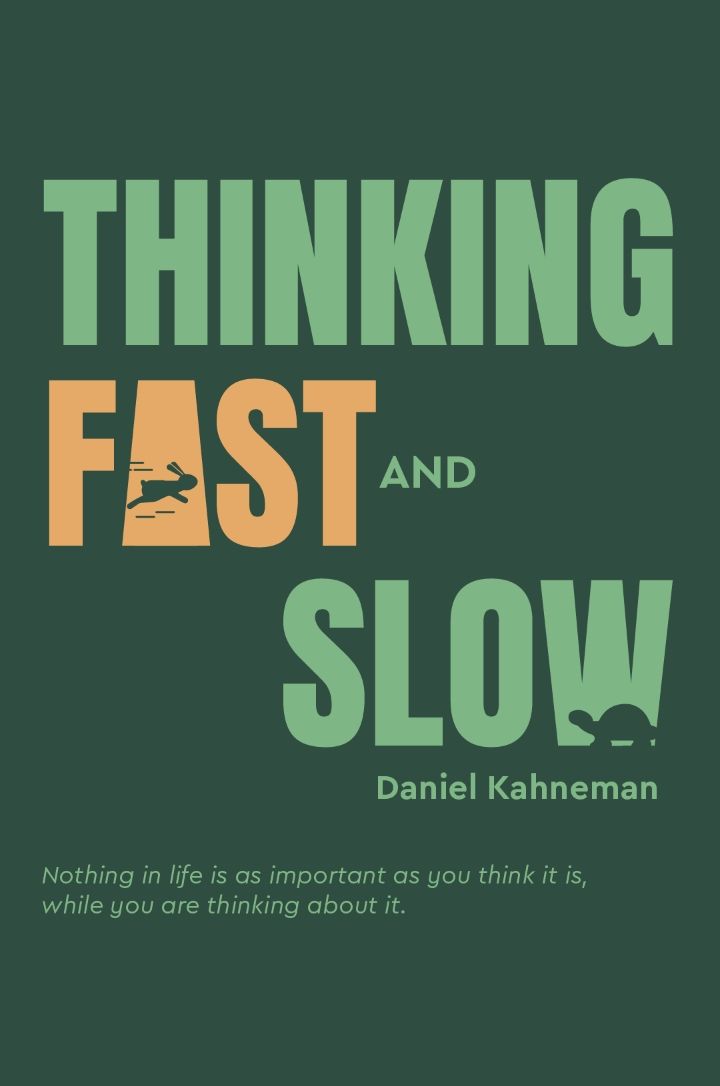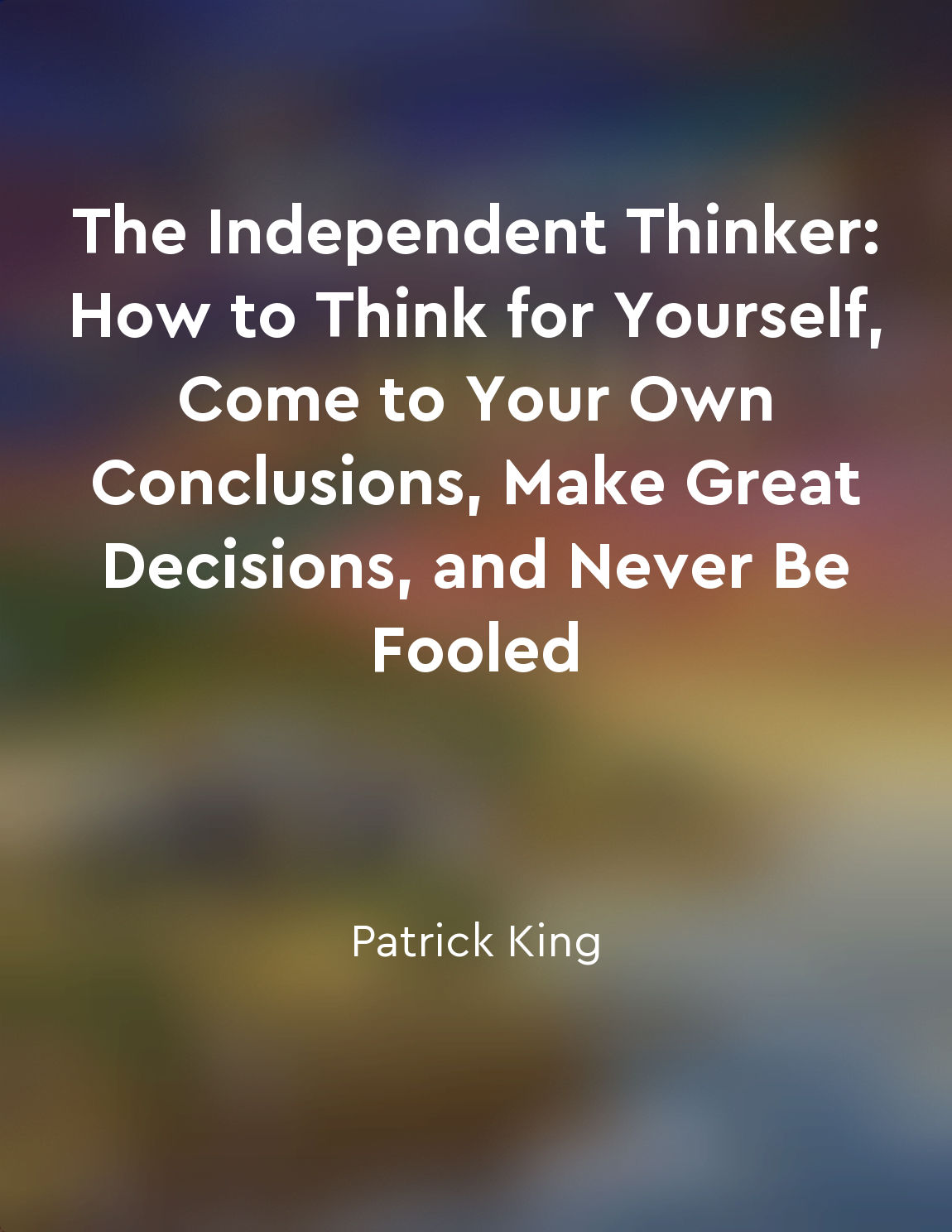Avoid cognitive biases from "summary" of The Independent Thinker: How to Think for Yourself, Come to Your Own Conclusions, Make Great Decisions, and Never Be Fooled by Patrick King
Cognitive biases are the mental shortcuts that our brains take to process information quickly and efficiently. These biases can often lead us astray, causing us to make flawed decisions and judgments without even realizing it. It's important to be aware of these biases so that we can actively work to avoid falling victim to them. One common cognitive bias is confirmation bias, which is the tendency to seek out information that confirms our preexisting beliefs and ignore information that contradicts them. This can prevent us from considering alternative viewpoints and lead us to make decisions based on incomplete or biased information. Another common bias is the availability heuristic, which is the tendency to rely on information that is readily available to us when making decisions. This can lead us to overestimate the likelihood of certain events based on how easily we can recall examples of them, rather than considering the full range of possibilities. It's also important to be aware of anchoring bias, which is the tendency to rely too heavily on the first piece of information we receive when making decisions. This initial piece of information, or anchor, can disproportionately influence our decision-making process and prevent us from fully considering all relevant factors. To avoid cognitive biases, it's important to approach information with a critical mindset and actively seek out alternative viewpoints and sources of information. By being open to new ideas and perspectives, we can challenge our own biases and make more informed and rational decisions. It's also helpful to take a step back and consider the full range of possibilities before making a decision, rather than relying on the first piece of information that comes to mind. By actively working to avoid cognitive biases, we can improve our critical thinking skills and make better decisions in all aspects of our lives.Similar Posts
The brain can rewire itself in response to new experiences
One of the most remarkable features of the brain is its ability to adapt and change in response to new experiences. This phenom...
The hindbrain controls basic functions like breathing
The hindbrain is located at the base of the brain and is responsible for controlling many essential functions of the body, such...
Building trust is important
Building trust is the foundation of any successful relationship, whether it be in business, personal life, or any other aspect ...

Assertiveness training
Assertiveness training is a powerful tool that can help you establish boundaries, communicate effectively, and stand up for you...
Socialization begins at an early age
The process of socialization begins when we are just infants. Even before we can speak, we are absorbing information from the w...
Neuromarketing helps tap into the consumer's unconscious desires
Neuromarketing delves into the subconscious mind of consumers, revealing desires that even they may not be fully aware of. By u...
Framing can alter the way choices are perceived
The way in which choices are presented to us can significantly influence our decisions. By framing a choice in a certain way, w...
Contrarian investors must be willing to go against the crowd
Contrarian investors are a unique breed. They possess the courage and conviction to stand apart from the herd mentality that ty...

WYSIATI What You See Is All There Is
The mind that we see in ourselves is not all there is. We are blind to flaws in our reasoning. WYSIATI - what you see is all th...
Engage in active and reflective thinking
Engage in active and reflective thinking involves more than just passively receiving information. It requires actively question...

